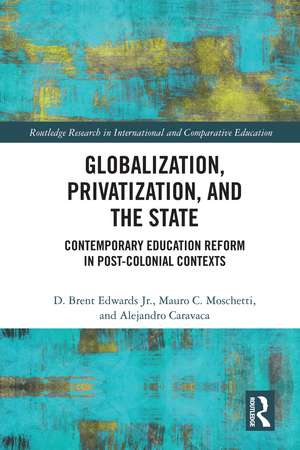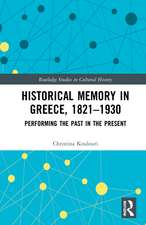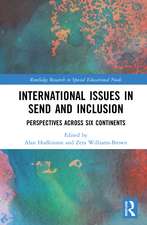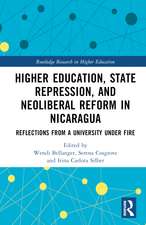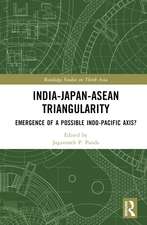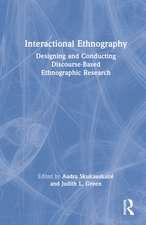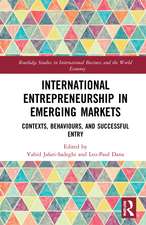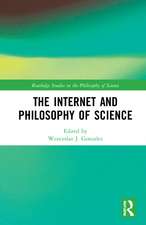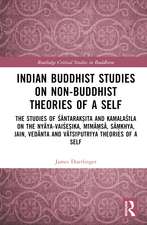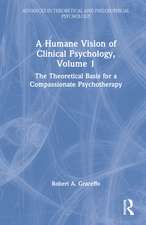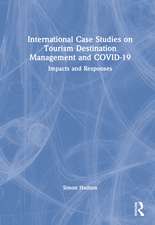Globalization, Privatization, and the State: Contemporary Education Reform in Post-Colonial Contexts: Routledge Research in International and Comparative Education
Autor D. Brent Edwards Jr., Mauro C. Moschetti, Alejandro Caravacaen Limba Engleză Hardback – 16 aug 2022
| Toate formatele și edițiile | Preț | Express |
|---|---|---|
| Paperback (1) | 251.01 lei 6-8 săpt. | |
| Taylor & Francis – 27 mai 2024 | 251.01 lei 6-8 săpt. | |
| Hardback (1) | 999.16 lei 6-8 săpt. | |
| Taylor & Francis – 16 aug 2022 | 999.16 lei 6-8 săpt. |
Din seria Routledge Research in International and Comparative Education
-
 Preț: 316.63 lei
Preț: 316.63 lei -
 Preț: 310.85 lei
Preț: 310.85 lei -
 Preț: 310.03 lei
Preț: 310.03 lei - 9%
 Preț: 934.66 lei
Preț: 934.66 lei -
 Preț: 311.37 lei
Preț: 311.37 lei -
 Preț: 665.74 lei
Preț: 665.74 lei -
 Preț: 302.40 lei
Preț: 302.40 lei -
 Preț: 302.37 lei
Preț: 302.37 lei -
 Preț: 305.45 lei
Preț: 305.45 lei -
 Preț: 318.07 lei
Preț: 318.07 lei -
 Preț: 303.42 lei
Preț: 303.42 lei - 18%
 Preț: 1216.52 lei
Preț: 1216.52 lei -
 Preț: 402.66 lei
Preț: 402.66 lei - 18%
 Preț: 994.74 lei
Preț: 994.74 lei - 18%
 Preț: 1169.45 lei
Preț: 1169.45 lei -
 Preț: 388.64 lei
Preț: 388.64 lei - 18%
 Preț: 1000.27 lei
Preț: 1000.27 lei - 12%
 Preț: 318.90 lei
Preț: 318.90 lei - 18%
 Preț: 1054.71 lei
Preț: 1054.71 lei - 18%
 Preț: 1001.84 lei
Preț: 1001.84 lei - 18%
 Preț: 1000.27 lei
Preț: 1000.27 lei - 18%
 Preț: 1056.35 lei
Preț: 1056.35 lei - 28%
 Preț: 876.38 lei
Preț: 876.38 lei - 31%
 Preț: 765.43 lei
Preț: 765.43 lei -
 Preț: 482.35 lei
Preț: 482.35 lei - 18%
 Preț: 1057.09 lei
Preț: 1057.09 lei - 26%
 Preț: 848.96 lei
Preț: 848.96 lei -
 Preț: 402.66 lei
Preț: 402.66 lei - 18%
 Preț: 1166.68 lei
Preț: 1166.68 lei - 18%
 Preț: 1060.87 lei
Preț: 1060.87 lei - 31%
 Preț: 764.20 lei
Preț: 764.20 lei - 31%
 Preț: 766.12 lei
Preț: 766.12 lei - 18%
 Preț: 1052.35 lei
Preț: 1052.35 lei - 18%
 Preț: 259.98 lei
Preț: 259.98 lei - 28%
 Preț: 848.23 lei
Preț: 848.23 lei - 26%
 Preț: 763.78 lei
Preț: 763.78 lei - 16%
 Preț: 305.97 lei
Preț: 305.97 lei - 18%
 Preț: 1000.27 lei
Preț: 1000.27 lei - 28%
 Preț: 818.28 lei
Preț: 818.28 lei - 12%
 Preț: 318.90 lei
Preț: 318.90 lei - 18%
 Preț: 1051.60 lei
Preț: 1051.60 lei - 18%
 Preț: 1167.61 lei
Preț: 1167.61 lei
Preț: 999.16 lei
Preț vechi: 1218.48 lei
-18% Nou
Puncte Express: 1499
Preț estimativ în valută:
191.20€ • 204.45$ • 159.41£
191.20€ • 204.45$ • 159.41£
Carte tipărită la comandă
Livrare economică 18 aprilie-02 mai
Preluare comenzi: 021 569.72.76
Specificații
ISBN-13: 9780367460822
ISBN-10: 0367460823
Pagini: 218
Ilustrații: 4 Tables, black and white; 8 Line drawings, black and white; 8 Illustrations, black and white
Dimensiuni: 152 x 229 x 14 mm
Greutate: 0.42 kg
Ediția:1
Editura: Taylor & Francis
Colecția Routledge
Seria Routledge Research in International and Comparative Education
Locul publicării:Oxford, United Kingdom
ISBN-10: 0367460823
Pagini: 218
Ilustrații: 4 Tables, black and white; 8 Line drawings, black and white; 8 Illustrations, black and white
Dimensiuni: 152 x 229 x 14 mm
Greutate: 0.42 kg
Ediția:1
Editura: Taylor & Francis
Colecția Routledge
Seria Routledge Research in International and Comparative Education
Locul publicării:Oxford, United Kingdom
Public țintă
PostgraduateRecenzii
“This book bursts open the taken-for-granted concepts of the state that circulate in studies of globalisation and education. Putting a critical reading of state theories into conversation with the specificities of educational privatization in Honduras, the authors illuminate the urgent need for a sustained and robust understanding of the interlocking forces of colonialism and capitalism in the field of education.”
- Arathi Sriprakash, Professor of Education, University of Bristol, UK
“This book offers and applies a much-needed framework for the study of the links between education reform and globalization in post-colonial settings. In doing so, it illuminates and accurately critiques the lack of deeper engagement with the (post-colonial) State in comparative and international education. The result is an impressive account of the ways that education reforms in Honduras have been--and continue to be--informed by logics, practices, and relationships that have their origins in colonialism. Most importantly, the book's framework and insights are broadly relevant and are sure to serve as key referents for work at the intersection of education, the State, and privatization.”
- Xavier Bonal, Professor, Autonomous University of Barcelona, Spain
“Edwards, Moschetti and Caravaca’s Globalization, Privatization, and the State: Education Reform in Post-colonial Contexts is a landmark in that it places the case study Honduras at the nexus of the ethos of privatization in education, the legacy of the post-colonial state and the exogenous and endogenous forces that shape the modalities of the modern state. This book goes beyond a surface-level description and analysis of global trends such as privatization and globalization and offers a timely and captivating perspective on the state’s role in education. In recentering the role of the post-colonial state, Edwards, Moschetti and Caravaca engage and challenge readers to comprehend the colonial logic of the state and to explore alternatives to state functioning. In today’s changing global governance architecture, this book is a must-read for anyone who wants to comprehend the state’s reemerging role and its efficacy in education.”
- Tavis Jules, Associate Professor, Loyola University Chicago, USA
“An extremely instructive and easy to read book describing and critiquing key theories of the state, with an emphasis on contemporary understandings of global policies in education. A productive application of post-colonial theories to Honduras, a country handicapped by low cohesion, limited organizational complexity, and a severely dependent economy, the book provides a test for examining the extent and autonomy of state power in enacting and implementing educational reform. Offering vital insights, this work will serve as a much-needed referent to those seeking to broaden their knowledge of how states function under similar conditions.
- Nelly P. Stromquist, Emerita Professor, University of Maryland, USA
“This is an important and timely book. Through advancing a model of the post-colonial state in education and critically applying it to the case of the privatisation of education in Honduras, the authors invite us to critically reconsider the nature of the relationship between education policy, colonialism and globalization. The book is a must read for scholars interested in both the genealogy of state theory in international and comparative education and the political economy of privatisation of education in Latin America”
- Leon Tikly, Professor & Global Chair in Education, University of Bristol, UK
“By integrating the insights from multiple power-conscious perspectives on the state, the authors offer an intriguing case study of the privatization of education in Honduras. However, they also offer an innovative framework for engaging with the many complex social, political, and economic dimensions that shape the globalization of educational policy in various contexts characterized by enduring colonial legacies in their many formations.”
- Sharon Stein, Assistant Professor, University of British Columbia, Canada
“Este libro es indispensable para comprender las reformas educativas más allá de los esquemas analíticos de política internacional, indagando en la naturaleza del propio Estado y en la forma en que los estados periféricos, como Honduras, se ven afectados por el colonialismo. Los autores de esta obra argumentan que la comprensión de las reformas educativas en contextos postcoloniales, requiere que los académicos trasciendan la descripción o el análisis superficial de tendencias como la privatización para considerar las formas en que las tensiones, prácticas y relaciones que caracterizan el colonialismo se insertan en el aparato de los estados modernos. Esta obra se ilustra desde el campo empírico y aporta a la comunidad científica, conocimiento sobre un país desconocido, cargado de contradicciones sociales y políticas, derivadas de su singular condición geopolítica. En la literatura, el caso de Honduras ya ha sido analizado desde la perspectiva de estado moderno versus estado pre-moderno, en el cual el autoritarismo y la administración clientelar son factores claves, pero es en esta obra donde por primera vez se aborda desde las lógicas coloniales. Los argumentos clave, desarrollados aquí son un aporte potencial para pensar una agenda de alternativas.”
- Ricardo Morales-Ulloa, Professor, Universidad Pedagógica Nacional Francisco Morazán, Honduras
“El libro aborda una temática de indudable relevancia y aporta nuevas perspectivas para el estudio de los procesos de privatización educativa a nivel global. Tomando como base el caso de Honduras, se propone una lectura crítica del lugar del Estado en el desarrollo de estos procesos. Resulta particularmente interesante como el libro muestra las limitaciones de las líneas de estudio desarrolladas actualmente para abordar el fenómeno de la privatización educativa, a la vez que sugiere la necesidad de integrar lecturas de más larga duración que muestren como las prácticas y los modos de relación coloniales subsisten en los modos de organización de los Estados modernos. El cierre del libro, en su capítulo 9 titulado “Within and Beyond the State: Post-Colonial Perspectives and Decolonial Directions”, propone la necesidad de trascender miradas poscoloniales e integrar enfoques decoloniales. El libro en su conjunto supone un aporte de indudable trascendencia para una renovación de las líneas de estudio acerca de la privatización educativa y constituye un aporte de muy necesario para quienes investigamos sobre estas temáticas desde diversos contextos y realidades nacionales.”
- Pablo Martinis, Professor, Universidad de la República, Uruguay
- Arathi Sriprakash, Professor of Education, University of Bristol, UK
“This book offers and applies a much-needed framework for the study of the links between education reform and globalization in post-colonial settings. In doing so, it illuminates and accurately critiques the lack of deeper engagement with the (post-colonial) State in comparative and international education. The result is an impressive account of the ways that education reforms in Honduras have been--and continue to be--informed by logics, practices, and relationships that have their origins in colonialism. Most importantly, the book's framework and insights are broadly relevant and are sure to serve as key referents for work at the intersection of education, the State, and privatization.”
- Xavier Bonal, Professor, Autonomous University of Barcelona, Spain
“Edwards, Moschetti and Caravaca’s Globalization, Privatization, and the State: Education Reform in Post-colonial Contexts is a landmark in that it places the case study Honduras at the nexus of the ethos of privatization in education, the legacy of the post-colonial state and the exogenous and endogenous forces that shape the modalities of the modern state. This book goes beyond a surface-level description and analysis of global trends such as privatization and globalization and offers a timely and captivating perspective on the state’s role in education. In recentering the role of the post-colonial state, Edwards, Moschetti and Caravaca engage and challenge readers to comprehend the colonial logic of the state and to explore alternatives to state functioning. In today’s changing global governance architecture, this book is a must-read for anyone who wants to comprehend the state’s reemerging role and its efficacy in education.”
- Tavis Jules, Associate Professor, Loyola University Chicago, USA
“An extremely instructive and easy to read book describing and critiquing key theories of the state, with an emphasis on contemporary understandings of global policies in education. A productive application of post-colonial theories to Honduras, a country handicapped by low cohesion, limited organizational complexity, and a severely dependent economy, the book provides a test for examining the extent and autonomy of state power in enacting and implementing educational reform. Offering vital insights, this work will serve as a much-needed referent to those seeking to broaden their knowledge of how states function under similar conditions.
- Nelly P. Stromquist, Emerita Professor, University of Maryland, USA
“This is an important and timely book. Through advancing a model of the post-colonial state in education and critically applying it to the case of the privatisation of education in Honduras, the authors invite us to critically reconsider the nature of the relationship between education policy, colonialism and globalization. The book is a must read for scholars interested in both the genealogy of state theory in international and comparative education and the political economy of privatisation of education in Latin America”
- Leon Tikly, Professor & Global Chair in Education, University of Bristol, UK
“By integrating the insights from multiple power-conscious perspectives on the state, the authors offer an intriguing case study of the privatization of education in Honduras. However, they also offer an innovative framework for engaging with the many complex social, political, and economic dimensions that shape the globalization of educational policy in various contexts characterized by enduring colonial legacies in their many formations.”
- Sharon Stein, Assistant Professor, University of British Columbia, Canada
“Este libro es indispensable para comprender las reformas educativas más allá de los esquemas analíticos de política internacional, indagando en la naturaleza del propio Estado y en la forma en que los estados periféricos, como Honduras, se ven afectados por el colonialismo. Los autores de esta obra argumentan que la comprensión de las reformas educativas en contextos postcoloniales, requiere que los académicos trasciendan la descripción o el análisis superficial de tendencias como la privatización para considerar las formas en que las tensiones, prácticas y relaciones que caracterizan el colonialismo se insertan en el aparato de los estados modernos. Esta obra se ilustra desde el campo empírico y aporta a la comunidad científica, conocimiento sobre un país desconocido, cargado de contradicciones sociales y políticas, derivadas de su singular condición geopolítica. En la literatura, el caso de Honduras ya ha sido analizado desde la perspectiva de estado moderno versus estado pre-moderno, en el cual el autoritarismo y la administración clientelar son factores claves, pero es en esta obra donde por primera vez se aborda desde las lógicas coloniales. Los argumentos clave, desarrollados aquí son un aporte potencial para pensar una agenda de alternativas.”
- Ricardo Morales-Ulloa, Professor, Universidad Pedagógica Nacional Francisco Morazán, Honduras
“El libro aborda una temática de indudable relevancia y aporta nuevas perspectivas para el estudio de los procesos de privatización educativa a nivel global. Tomando como base el caso de Honduras, se propone una lectura crítica del lugar del Estado en el desarrollo de estos procesos. Resulta particularmente interesante como el libro muestra las limitaciones de las líneas de estudio desarrolladas actualmente para abordar el fenómeno de la privatización educativa, a la vez que sugiere la necesidad de integrar lecturas de más larga duración que muestren como las prácticas y los modos de relación coloniales subsisten en los modos de organización de los Estados modernos. El cierre del libro, en su capítulo 9 titulado “Within and Beyond the State: Post-Colonial Perspectives and Decolonial Directions”, propone la necesidad de trascender miradas poscoloniales e integrar enfoques decoloniales. El libro en su conjunto supone un aporte de indudable trascendencia para una renovación de las líneas de estudio acerca de la privatización educativa y constituye un aporte de muy necesario para quienes investigamos sobre estas temáticas desde diversos contextos y realidades nacionales.”
- Pablo Martinis, Professor, Universidad de la República, Uruguay
Cuprins
1. The Intersection of Globalization, Privatization, and the State 2. Default Privatization in a Weak State: Manifestations of Privatization in Education Provision 3. Contemporary Education Reform Dynamics in Honduras: Privatization Through Policymaking 4. Privatization and the Modern State: Tracing Clientelism and Private Interests in Education 5. The State in Macro-Sociological Scholarship and Global Education Policy Studies: A Critical Appraisal 6. Critical Perspectives on the State: Political Economy, World Systems, and Post-Colonial Insights 7. Connecting State Theories and Extending the Post-Colonial Perspective 8. Explaining the Post-Colonial State: A Framework and Its Application 9. Within and Beyond the State: Post-Colonial Perspectives and Decolonial Directions
Notă biografică
D. Brent Edwards Jr. is Associate Professor of Theory and Methodology in the Study of Education at the University of Hawaii, USA.
Mauro C. Moschetti is Serra-Hunter Lecturer (Assistant Professor) in the Faculty of Education at the Autonomous University of Barcelona, Spain.
Alejandro Caravaca is Research Assistant at the Autonomous University of Barcelona, Spain.
Mauro C. Moschetti is Serra-Hunter Lecturer (Assistant Professor) in the Faculty of Education at the Autonomous University of Barcelona, Spain.
Alejandro Caravaca is Research Assistant at the Autonomous University of Barcelona, Spain.
Descriere
This text explores how the dynamics of globalization and privatization have influenced state policy and impacted education reform in Honduras. This text will benefit researchers, academics, and educators with a focus on international and comparative education, policy analysis, globalization, and international development.
